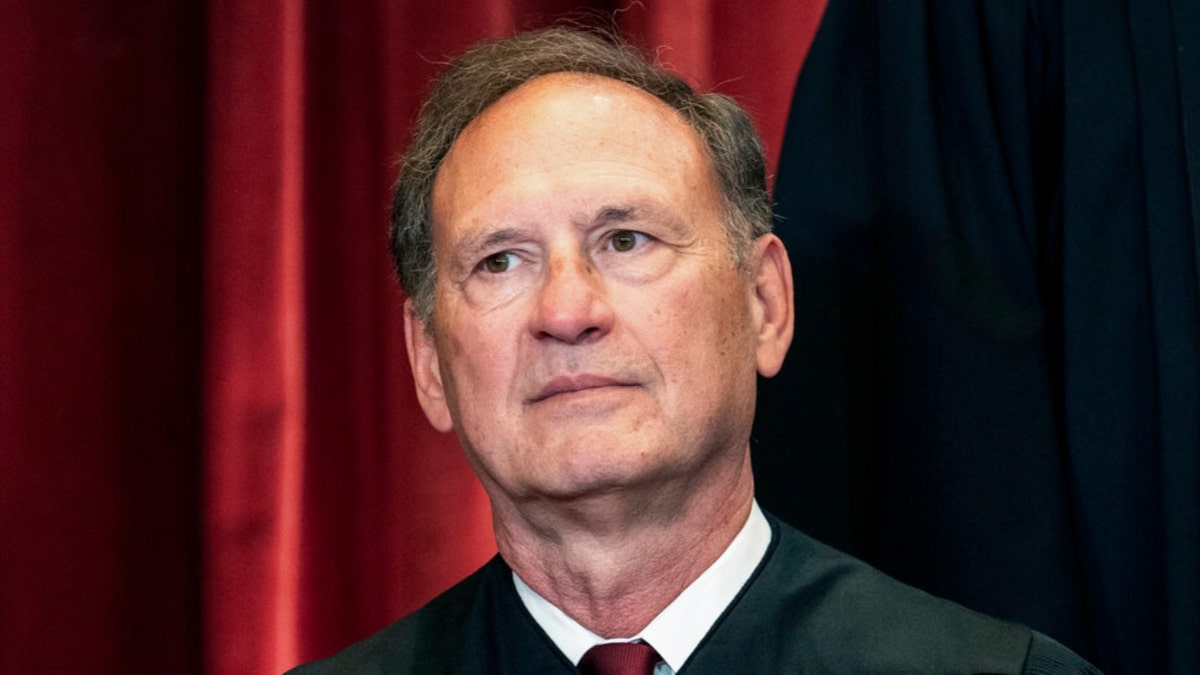Fox News Flash top headlines for June 19
Fox News Flash top headlines are here. Check out what's clicking on Foxnews.com.
The balance of power on the Supreme Court has shifted in favor of a "conservative" majority since the appointment of three new justices during the Trump administration. Despite what is often said in the mainstream media, we argue in our new book, "The Politically Incorrect Guide to the Supreme Court," that this does not mean the current court routinely rubber-stamps laws or actions supported by conservative voters and politicians.
On the contrary, both the court and individual "conservative" justices have issued opinions that favor, say, Big Tech, animal welfare and labor unions, opinions based on jurisprudence, not politics.
The "conservatism" of the current court is rooted in "originalism," the idea that the Constitution is to be interpreted and applied in the light of the original public meaning of its terms when they were adopted.
HOUSE DEMS WILL USE RARE PROCEDURAL MANEUVER TO FORCE REPUBLICANS TO VOTE ON ABORTION RIGHTS
"Originalism" requires careful attention to the written text of the Constitution, to the Constitution’s overall structure, and to history, both at the time of its framing, during the early republic, and later.

Legacy media outlets incorrectly portray the Supreme Court as "conservative." In reality, many of the justices support the original wording of the Constitution and rule accordingly. (Erik McGregor/LightRocket via Getty Images)
As an approach to constitutional decision-making, originalism carries momentous consequences:
1. Separation of Powers
It has led to a revived interest on the court in sustaining the founders’ system of federal separation of powers. The current court has begun the process — which may take decades to unfold — of reversing this misallocation of federal powers and curbing the overgrown administrative state.
We review this development in the chapters that deal with the administrative state, focusing on the court’s decision in West Virginia v. Environmental Protection Agency (2022).
Bridling the administrative state would entail massive changes in the way our society is governed. On a host of vital issues — including mask mandates, compulsory vaccinations, student debt forgiveness, the regulation of carbon emissions and the national debt — the president and federal bureaucracy have acted, or threatened to act, with barely a nod to Congress.
Recovering the original plan of the Constitution will restrain such abuses, protect civil liberties, and revitalize democratic debate.
2. Individual Rights
The court’s originalist viewpoint has prompted it to affirm and reinvigorate individual rights, notably including the right to keep and bear arms. "The Politically Incorrect Guide to the Supreme Court" examines the three most groundbreaking cases (District of Columbia v. Heller, 2008; McDonald v. Chicago, 2010; and New York State Rifle & Pistol Ass’n v. Bruen, 2022) to understand the court’s developing gun rights jurisprudence.
As we note in our book, in Bruen the court revealed that it "would no longer treat the Second Amendment as a second-class right but would put the right to bear arms on a par with other core liberties such as freedom of speech."
3. Abortion Rights
Originalism guided the court to measure the alleged — but unenumerated — right to an abortion against the Constitution and to conclude no such right can be found in it. As three of our chapters detail, the right to an abortion has nothing to be said for it as an originalist matter.

Part of the left's ongoing attack against the Supreme Court includes the leak of Justice Samuel Alito’s draft in the Dobb's abortion case. (Erin Schaff/The New York Times via AP, Pool, File)
In Dobbs v. Jackson Women’s Health Organization (2022), the court so held, overruling its 1973 decision in Roe v. Wade and the 1992 decision Planned Parenthood v. Casey, which had attempted to rescue Roe from the many powerful criticisms of it that had emerged up to that point.
The Constitution nowhere spells out, in terms, the right to an abortion. With even liberal legal scholars conceding that the asserted textual basis for the alleged right was astonishingly feeble, the court had founded the right to abortion on a gauzily defined right of "privacy" — even when those private decisions directly resulted in the killing of an unborn child or fetus.
CLICK HERE TO GET THE OPINION NEWSLETTER
Dobbs decisively pointed out that, prior to Roe, there had been little legal affirmation of the existence of any such unfettered right. Dobbs delivered the coup de grace to Roe and relegated it to the category of the court’s worst mistakes.
But the court has incurred a huge amount of odium — much of it extremely misinformed — for its brave decision in Dobbs. The process of vilification and intimidation began with an insider’s leak of Justice Samuel Alito’s draft opinion and continued with protests outside the homes of the conservative justices, death threats and an assassination attempt.
"Originalism" requires careful attention to the written text of the Constitution, to the Constitution’s overall structure, and to history, both at the time of its framing, during the early republic, and later.
Liberals in Congress and the media have also been pressing schemes to eviscerate the court’s independence, whether through "court-packing" or misguided "ethics" requirements.
CLICK HERE TO GET THE FOX NEWS APP
Despite these slanders and threats, the court shows no sign of surrendering to its critics. In the final chapter of our book, we outline the trajectory that we think the court will follow and discuss the force that the court should attribute to its past precedents when they contravene the original meaning of the Constitution.
We are not over-optimistic that the court will have the long-term stamina — and personnel —to persist on the path it marked out last year. But intellectual dynamism and moral conviction are with the court’s conservatives, and they may finally prevail.
John Yoo and Robert Delahunty will release their new book "The Politically Incorrect Guide to the Supreme Court" (Regnery) on June 27. Yoo is a law professor at the University of California, Berkeley, a nonresident senior fellow at the American Enterprise Institute, and a visiting fellow at the Hoover Institution. Delahunty is a Washington Fellow of the Claremont Institute's Center for the American Way of Life.


